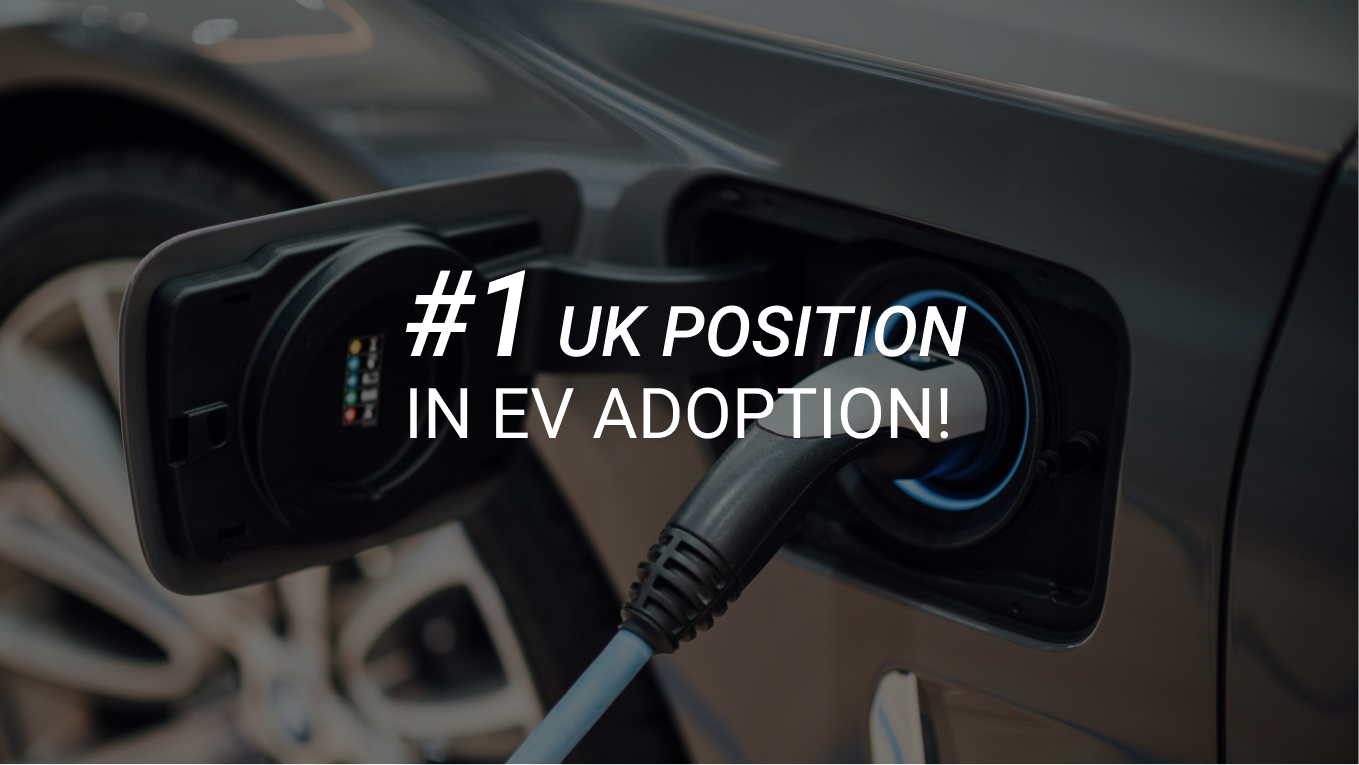The UK on Top: Leading EV Adoption and Shaping the Future of the EV Market.
 27.07.2025
27.07.2025
 4 mins to read
4 mins to read

Despite economic headwinds and policy uncertainty abroad, the United Kingdom is emerging as a clear European frontrunner in electric vehicle (EV) adoption. According to BloombergNEF’s latest Electric Vehicles Outlook, the UK claimed a 29% EV market share in 2024 – ahead of France (27%) and well ahead of Germany (13.9%). Globally, the UK ranks just behind China, underscoring the country’s pivotal role in the shift to electrified transport.
How Mandates and Market Openness Fuel the UK EV Market
Much of this success is attributed to a blend of policy pressure and market openness. The Zero Emission Vehicle (ZEV) Mandate, introduced by the UK government, is a key driver – requiring 28% of all new cars sold by the end of 2025 to be zero-emission. Currently, the UK is on track, sitting at around 22%. Unlike some markets still hesitant to embrace change, the UK has shown a remarkable openness to Chinese EV brands like MG and BYD, which have introduced affordable models to the British market.
This openness has proven decisive. As battery prices fall and consumer choice expands, electric cars are no longer niche. In fact, two out of five used EVs in the UK now sell for under £20,000, with 34 new models on the market starting under £30,000.
EV Adoption Without a Driveway?
While the UK doesn’t quite match Norway’s near-total EV dominance (close to 90% of sales in 2024), it has overtaken every major EU nation in terms of adoption – despite having some of the highest public and domestic electricity prices in Europe.
Public confidence is rising, thanks in part to infrastructure gains. The UK now boasts over 82,000 public chargepoints, with one added every 30 minutes, and an expected 100,000 more on the way, fuelled by £6 billion in private investment and public schemes like the Local EV Infrastructure Fund. New signage on major roads is also helping drivers better locate chargers – a small but impactful step for visibility and reassurance.
Still, infrastructure remains a challenge. A pioneering new £63 million government package aims to address inequalities, particularly for households without driveways. Through cross-pavement charging tech and local authority funding, these homes will be able to access cheaper domestic electricity rates – potentially saving up to £1,500 per year compared to running a petrol car.
EVs in the Public Sector: NHS Fleet Goes Electric
Public sector fleets are joining the revolution too. An £8 million investment into NHS England will electrify medical and ambulance fleets across over 200 sites, cutting fuel and maintenance costs dramatically and freeing up millions for reinvestment into patient care.
This aligns with the government’s wider “Plan for Change”, which aims to boost green jobs, cut costs for working families, and stimulate economic growth through electrification.
A Global Leader But for How Long? – BloombergNEF predictions
The global EV outlook, however, is more complex. While EV sales are expected to reach 22 million units in 2025 a 25% increase from 2024 – BloombergNEF has revised its long-term projections downward, citing policy reversals in the United States under Donald Trump’s administration. These include the phase-out of EV tax credits and weaker fuel economy standards, which could lead to 14 million fewer EVs sold globally by 2030 than previously forecasted.
This global deceleration could impact battery demand. BloombergNEF now projects 8% lower demand for batteries over the next decade, and Chinese gigafactories are already reporting utilisation rates below 50% due to oversupply. Paradoxically, this glut is helping to drive battery prices down, a development that could benefit European consumers in the short term including those in the UK.
Looking Ahead
BNEF expects the UK to outperform global averages, projecting that EVs will account for 64% of all new passenger car sales by 2030, compared to a global average of 42%. But for that to happen, policy support must remain strong, infrastructure must expand, and the EV technician workforce must scale in line with demand.
The UK has staked its claim as a European EV leader – now the challenge is to maintain that lead, not just with chargers and mandates, but with people, skills, and confidence to match the pace of transformation.
Sources:
https://evpowered.co.uk/news/uk-leading-european-ev-adoption-as-sales-outlook-downgraded
https://www.motortradenews.com/electric-vehicles/uk-leads-europe-in-ev-adoption-bloombergnef-2
https://www.gov.uk/government/news/new-63-million-boost-for-britains-electric-vehicle-revolution






